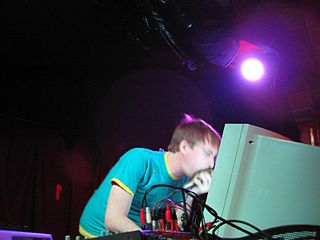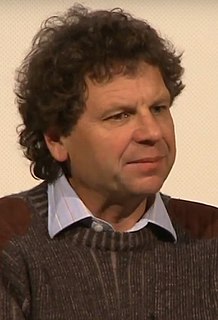A Quote by Nick Laird
The whole process of having to put the thing into the world seems so antithetical to the act of writing. Poetry is slightly easier, because there's less money and fewer people involved. You just let a book of poems trickle out in the world, and it finds its own people. Novels are much harder, and you don't think you should have to do some of the things you're made to do.
Related Quotes
Lately I've been thinking about the idea that all novels are, at least in some way, about the process of writing a novel - that the construction of the book and the lineage of people constructing novels are always part of the story the author is telling. I think the equivalent for memoir should be that all memoirs are, in some way, about the process of memory. Memoirs are made out of a confusing, flawed act of creation.
Everybody has their own approach to songwriting. When you're an electronic musician, the whole writing process just depends. Some people have a very live way of writing electronic music, very improvisational. They set up a lot of gear and do live takes. I'm concerned with having a specific kind of sound. There's not one second that I haven't put thought into. I put almost as much time into my live shows as I do into writing music, but they're two completely different processes. Some people think the way I perform live is how I write songs, which isn't true at all.
If you think reading a book is hard, you should try writing one. Because it's even harder. It's still not as hard as writing a game, though. If you discount the purely visual pop-up parts, a book is made almost entirely of words. As a novelist, you just need to think of a few decent strings of words and then fill the other 98% of the book with more or less random descriptions of things and exclamation points.
Investing intelligently in those of us who are marginalised means fewer people in jail, fewer homeless, fewer unemployed, fewer of us who are forlorn and depressed, fewer people addicted to things that drag us down... Because as we invest in those that do it tough, we will see more Australians taking pride in themselves, having realisable dreams and aspirations and making their own positive contribution to the world's greatest nation.
I feel less and less like that every year, and I guess maybe even more so with every new record that I put out. I just think, as the years go by, it's harder and harder to really find a reason to be annoyed that you made something that people want to continuously talk about. Certainly there are contexts in which the record can be discussed which will get me on the defensive and make me want to put some kind of calibration or some kind of context on what the record means in relation to my career as a whole.
If you are self-motivated, wow, this world is tailored for you. The boundaries are all gone. But if you're not self-motivated, this world will be a challenge because the walls, ceilings and floors that protected people are also disappearing. That is what I mean when I say "it is a 401(k) world." Government will do less for you. Companies will do less for you. Unions can do less for you. There will be fewer limits, but also fewer guarantees. Your specific contribution will define your specific benefits much more. Just showing up will not cut it.
I do talk and think a lot about the legacy before me. I feel like if I didn't know that people had been in Montgomery sixty years ago trying to do similar things that I'm trying to do, with a lot less, with fewer resources, with less security, with less encouragement, with less opportunity - if I didn't know that, then I think doing what I do would be much, much harder.






































